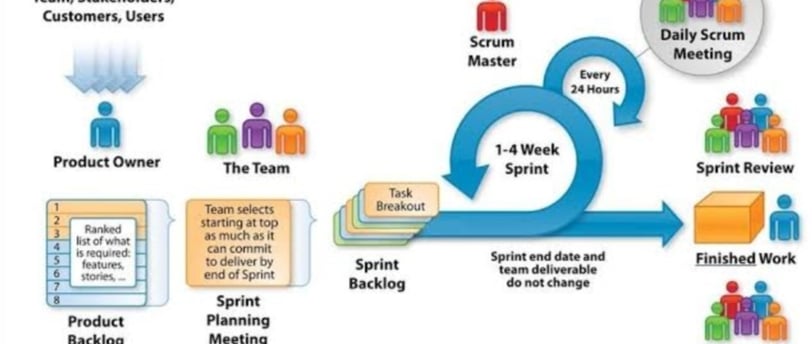Understanding Scrum to improve your Efficiency
Roopesh Mathur, CTO AgileDevOps, Smart Management Consultancy


Understanding Scrum to improve efficiency
Understanding Scrum can greatly improve the efficiency of your daily work when you begin creating backlogs and working in sprints with customer demos. Here's how:
1. Enhanced visibility and prioritization: Scrum helps you create a prioritized backlog of tasks, allowing you to have a clear view of what needs to be done. By understanding Scrum, you can break down requirements into actionable tasks, ensure alignment with customer needs, and continuously refine and reprioritize the backlog.
2. Increased collaboration and focus: Scrum encourages teamwork and collaboration. Daily scrum meetings help the team collaborate, stay focused, and align their efforts towards the sprint goal. Understanding Scrum allows you to actively participate in these meetings, share updates, identify and address impediments, and ensure the team is on track.
3. Agile development and faster delivery: By working in short, timeboxed sprints, Scrum promotes iterative and incremental development. Understanding Scrum enables you to embrace agility, rapidly deliver working increments, and gather timely feedback from customers during sprint demos. This helps in adapting to changing requirements, making course corrections, and reducing the risk of delivering a product that doesn't meet customer expectations.
4. Continuous improvement: Scrum emphasizes inspecting and adapting at various stages. With a good understanding of Scrum, you can participate in sprint retrospectives to identify areas for improvement, share observations, suggest changes, and iterate on the team's practices. This iterative approach fosters a culture of continuous improvement, leading to increased efficiency over time.
5. Empowered self-organizing teams: Scrum empowers teams to self-organize, make decisions, and take ownership of their work. Understanding Scrum allows you to contribute to the team's self-organization, participate in decision-making processes, and collaborate better with others. This empowerment and autonomy lead to increased efficiency and productivity.
In summary, understanding Scrum enables you to optimize daily work by enhancing visibility, prioritizing tasks, promoting collaboration, fostering agile development, encouraging continuous improvement, and empowering self-organizing teams. By leveraging these Scrum principles, you can improve efficiency and effectively meet customer needs.
